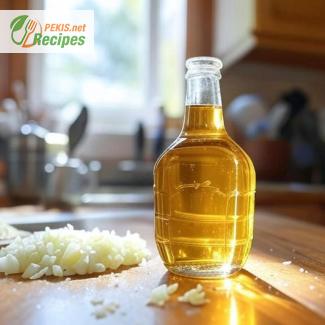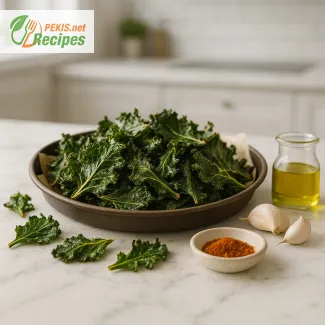
For centuries, natural remedies have been the cornerstone of family health practices, and onion syrup stands out as one of the most effective traditional solutions for persistent coughs. This humble yet powerful elixir has been passed down through generations, celebrated for its ability to soothe the throat, alleviate discomfort, and support respiratory health. If you’re searching for a natural, homemade remedy that combines simplicity with effectiveness, onion syrup is a time-tested option worth considering.
A Remedy Rooted in Tradition
The history of onion syrup traces back to households across Europe and beyond, where people relied on the medicinal properties of onions and sugar to combat respiratory issues. The process of creating this syrup is as simple as the ingredients themselves, making it an accessible and affordable solution for families. Whether you’re dealing with a nagging dry cough, a tickling throat, or the lingering effects of seasonal illnesses, this syrup offers relief without relying on synthetic chemicals.
Onions, a staple in kitchens worldwide, are packed with natural antioxidants, vitamins, and minerals. When combined with sugar or honey, they release juices that form a syrup renowned for its anti-inflammatory and antimicrobial properties. This sweet, slightly pungent concoction coats the throat, reducing irritation and helping to expel mucus, making it an ideal remedy for both adults and children.
Why Onion Syrup Works
The effectiveness of onion syrup lies in its key ingredients:
- Onions: Rich in quercetin, a natural antioxidant, onions have strong anti-inflammatory and immune-boosting properties. Quercetin is known to fight free radicals, supporting overall health and aiding the body in overcoming infections.
- Sugar or Honey: These act as natural preservatives while enhancing the taste of the syrup. Honey, in particular, brings additional antibacterial benefits, making the remedy even more potent.
This combination of simple yet potent ingredients creates a synergistic effect that soothes the throat, reduces inflammation, and supports the immune system. Unlike over-the-counter medications, onion syrup is free from artificial additives, making it a wholesome and natural choice.
The Benefits of Homemade Onion Syrup
Making onion syrup at home allows you to harness the full potential of its natural ingredients. It’s not just effective; it’s also a comforting ritual that connects us to traditional healing practices. Here are some of the top benefits:
- Natural and Chemical-Free: Unlike store-bought cough syrups, this remedy is free from synthetic additives and dyes.
- Cost-Effective: Made with ingredients you likely already have in your kitchen, it’s an affordable solution for respiratory health.
- Customizable: Adjust the sweetness or add other natural ingredients, such as ginger or lemon, to tailor the remedy to your taste and needs.
- Safe for All Ages: With proper preparation, onion syrup can be consumed by both adults and children, ensuring the whole family benefits from its soothing properties.
Perfect for Seasonal Wellness
As the colder months approach, the risk of developing coughs and colds increases. Onion syrup serves as a preventive measure and a reliable remedy when illness strikes. Its natural composition makes it gentle enough for frequent use, providing comfort and relief without harsh side effects. Plus, the process of making this syrup at home is quick and straightforward, offering a sense of accomplishment as you create your own remedy.
A Versatile Addition to Your Home Remedies
While its primary purpose is to combat persistent coughs, onion syrup can also support overall respiratory health and serve as a natural tonic during flu season. Incorporate it into your wellness routine, and you’ll have a trusted ally in your efforts to stay healthy.
Embrace the Healing Power of Onion Syrup
In a world increasingly dominated by synthetic solutions, onion syrup offers a refreshing return to nature’s wisdom. Its effectiveness, simplicity, and versatility make it a must-have in every home’s wellness toolkit. By preparing this traditional remedy, you’re not just addressing a cough—you’re embracing a holistic approach to health that values the power of natural ingredients.
Whether you’re battling a lingering cough or simply seeking to boost your respiratory health, onion syrup is a time-honored solution that deserves a place in your kitchen. With its rich history, proven benefits, and ease of preparation, it’s a remedy that blends the best of tradition and practicality.
- Prepare the Onion:
- Peel and finely slice the onion into thin rings. This helps release its natural juices, which are essential for the syrup.
- Layer the Ingredients:
- In a clean glass jar or bowl, create alternating layers of onion slices and sugar (or honey). Ensure the onion is fully covered by the sugar in each layer.
- Extract the Syrup:
- Cover the jar or bowl with a lid or clean cloth. Let the mixture sit at room temperature for 8–12 hours or overnight. During this time, the sugar (or honey) will draw out the juices from the onion, forming the syrup.
- Strain the Syrup:
- Once the mixture has released enough liquid, strain the syrup through a fine sieve or cheesecloth into a sterilized jar or bottle. Discard the onion slices.
- Optional Additions:
- If using, mix in grated ginger and lemon juice for added flavor and benefits.
- Storage:
- Store the syrup in an airtight container in the refrigerator for up to 7 days.
Enhancing and Customizing the Traditional Onion Syrup Recipe
The traditional onion syrup recipe is celebrated for its simplicity and effectiveness, but one of its greatest strengths lies in its versatility. By adjusting the ingredients or preparation methods, you can tailor the syrup to your taste preferences, dietary requirements, or health goals. Below, we explore a variety of adjustments and substitutions, each with unique impacts on flavor, nutritional profile, and medicinal properties.
Sweetener Choices and Their Effects
- Granulated Sugar:
Using traditional white sugar creates a neutral base with a sweet flavor that complements the onion’s mild spiciness. This choice ensures a classic taste, but it may not offer additional health benefits beyond its role as a preservative. - Honey:
Substituting sugar with honey not only enhances the syrup’s taste with floral undertones but also adds antimicrobial and soothing properties. Honey is particularly effective for cough relief, making it an ideal choice for those seeking an extra boost in functionality. - Brown Sugar:
Incorporating brown sugar introduces a richer, molasses-like flavor to the syrup, which pairs well with onion’s natural sweetness. It’s a great option for those who enjoy deeper, more complex flavors. - Agave Nectar or Maple Syrup:
For a vegan-friendly alternative, agave nectar or maple syrup works well. These substitutes add unique flavors—agave for its mild sweetness and maple for its caramel notes—while keeping the syrup suitable for different dietary needs.
Onion Varieties: Flavor and Nutritional Impact
- Yellow Onion:
The classic choice, yellow onions offer a balance of sweetness and sharpness, making them ideal for this syrup. They contain a high concentration of quercetin, an antioxidant that supports immune health. - Red Onion:
Using red onions introduces a milder, slightly sweeter flavor and a hint of color to the syrup. These onions are also rich in anthocyanins, antioxidants that may provide additional anti-inflammatory benefits. - White Onion:
For those who prefer a less pronounced onion flavor, white onions are an excellent choice. Their mild and crisp profile results in a subtler syrup, which may be more appealing to children or sensitive palates.
Adding Aromatics and Boosters
- Ginger:
Grating a teaspoon of fresh ginger into the mixture provides a warm, spicy note and enhances the syrup’s anti-inflammatory and antimicrobial properties. Ginger is particularly effective for soothing sore throats and improving circulation. - Garlic:
Adding a clove of crushed garlic introduces a robust, savory element to the syrup, along with powerful antiviral and antibacterial benefits. While the flavor may not appeal to everyone, garlic significantly boosts the medicinal value of the syrup. - Lemon Juice:
A splash of fresh lemon juice not only brightens the flavor but also adds vitamin C, which supports the immune system and aids in reducing mucus. - Herbs and Spices:
- Thyme: Fresh or dried thyme lends an earthy flavor and additional antimicrobial benefits.
- Cinnamon: A pinch of cinnamon powder can enhance sweetness and warmth, though it may overpower the onion's natural flavor if overused.
Adjusting the Texture and Consistency
- Thicker Syrup:
Allowing the onion-sugar mixture to sit longer (up to 24 hours) will produce a more concentrated syrup with stronger flavors and medicinal properties. - Thinner Syrup:
If you prefer a lighter consistency, reduce the waiting time or add a small amount of warm water to the final mixture before straining.
Storage Modifications
- Extended Shelf Life:
Adding a tablespoon of apple cider vinegar to the syrup acts as a natural preservative while introducing a tangy undertone. This addition is particularly useful if you plan to store the syrup for longer periods. - Freezing:
Pour the syrup into ice cube trays and freeze individual portions. This approach preserves the syrup for months and allows you to defrost just the amount you need.
Dietary and Allergy Considerations
- Low-Sugar Option:
For those managing their sugar intake, honey or sugar substitutes like stevia can replace granulated sugar. Keep in mind that these alternatives may affect the syrup’s flavor and viscosity. - Vegan Adjustments:
To ensure the recipe remains fully vegan, avoid honey and use sweeteners like agave nectar or coconut sugar. - Flavor Sensitivity:
If the onion’s sharpness is too strong, blanch the slices in boiling water for a few seconds before layering them with sugar. This step softens the flavor without significantly reducing medicinal benefits.
Flavor Pairings for Children
To make the syrup more appealing to children, consider the following:
- Add Honey and Lemon: These create a sweet and tangy profile that masks the onion’s sharpness.
- Infuse with Vanilla: A drop of natural vanilla extract can add a comforting sweetness that children enjoy.
Exploring Cultural Variations
- Mediterranean Touch:
Incorporate ingredients like olive oil or fresh oregano for a Mediterranean-inspired version. These additions contribute their own health benefits, particularly for respiratory health. - Asian-Inspired Version:
Add grated ginger, a splash of soy sauce, and a few drops of sesame oil for a flavor profile that combines traditional and modern approaches.
Conclusion: The Power of Customization
The traditional onion syrup recipe is more than just a remedy; it’s a versatile foundation that allows for endless customization. Whether you’re seeking to boost its medicinal value, enhance its flavor, or adapt it to your dietary needs, the possibilities are vast. Small adjustments can make a significant difference, ensuring that this timeless remedy remains a staple in every household, perfectly suited to individual preferences and health goals.
- This recipe is gluten-free and allergen-free in its basic form.
- Substitutions: For those allergic to honey, use granulated sugar or a vegan syrup alternative like agave nectar.
- Vitamin C: 1 mg – Supports immune function and helps reduce inflammation.
- Potassium: 15 mg – Assists in maintaining healthy muscle function and fluid balance.
- Calcium: 2 mg – Contributes to strong bones and teeth.
- Magnesium: 1 mg – Plays a role in nerve and muscle function.
- Quercetin: Found in onions, quercetin has anti-inflammatory and immune-boosting properties. It may help reduce respiratory inflammation.
- Sulfur Compounds: Promote detoxification and overall health by reducing oxidative stress.
- Vitamin C: Acts as an antioxidant, protecting cells from free radicals.
This traditional onion syrup is a simple, effective, and natural remedy for persistent coughs, combining the time-tested benefits of onion with the soothing properties of sugar or honey.





